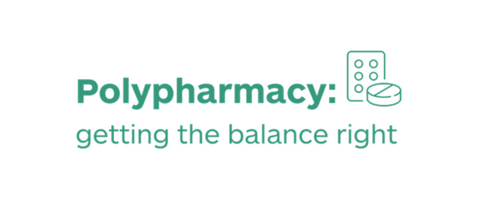Polypharmacy: getting the balance right

What is the problem we’re addressing?
Polypharmacy simply means many medicines. As more people live longer with multiple long-term conditions, the number of medicines they often take increases. This can have a significant burden on the person managing and trying to adhere to multiple medicines regimes and can also be harmful.
Studies have shown that that over 50% of older people are prescribed a medicine with more harm than benefit, leading to avoidable morbidity, hospitalisation and mortality. Polypharmacy adds preventable cost to the healthcare system and diminishes quality of care for the patient. The most deprived areas tend to have the most issues around polypharmacy, also making this a health inequality issue.
What are the outcomes we are trying to achieve?
Successful delivery of the programme within North Central London, North East London and Mid & South Essex will result in:
- A regional Polypharmacy Community of Practice, with members working to address the system-wide challenges of problematic polypharmacy in our geography.
- Routine use of the NHSBSA Polypharmacy Prescribing Comparators to identify and prioritise patients for a shared decision-making Structured Medication Review.
- Increased confidence amongst the region’s primary care prescribing workforce to safely stop medicines identified to be inappropriate or unnecessary.
- A change in patient expectations – to anticipate having a shared decision-making conversation about their medicines regularly, especially as they get older.
- A contribution to the evidence base around how to help patients to feel more empowered to open up about their medicines issues.
- A contribution to the evidence base around how to tackle problematic polypharmacy.
How will we do this?
The programme is based across three pillars which are supported by a UCLPartners Community of Practice:
Pillar 1: Population Health Management
Using data (NHSBSA polypharmacy prescribing comparators) to understand population health risks and support prioritisation of patients for a structured medication review.
Pillar 2: Education & Training
Investing in clinical leaders – AHSN Polypharmacy Clinical Leads and expert Polypharmacy Trainers and delivery of local Polypharmacy Action Learning Sets (ALSs) to upskill the primary care workforce to be more confident about stopping unnecessary medicines. The ALS model was originally developed and piloted by Wessex AHSN and supported by Health Education England (HEE).
Pillar 3: Public Behaviour Change
Local testing and evaluation of public-facing initiatives to change public perceptions of prescribing and encourage patients to open up about medicine concerns and expectations.
More information
Read the report: Engaging service-users and clinicians in piloting a polypharmacy related behaviour change campaign